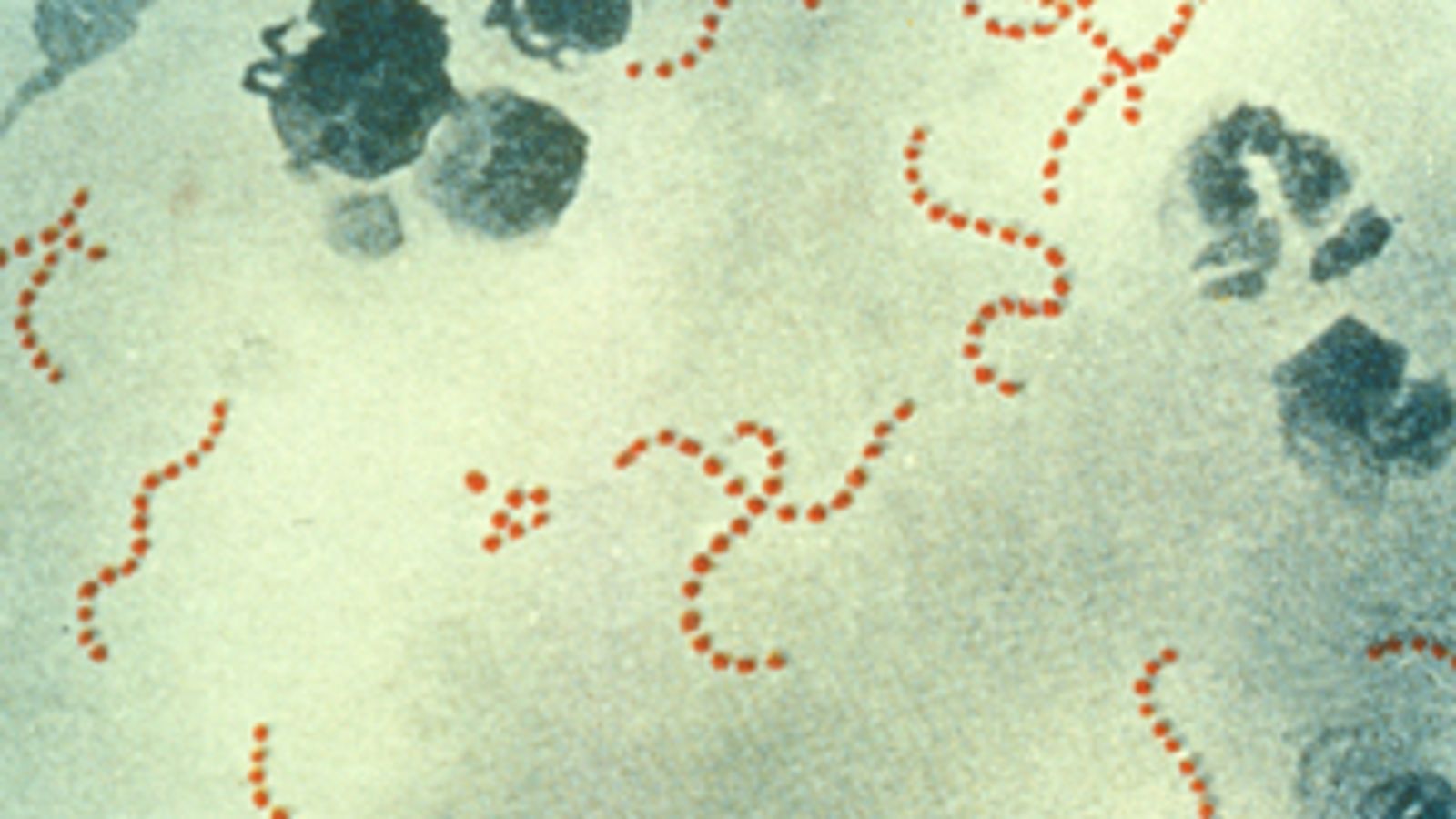The death of a four-year-old in Ireland has been linked to an invasive form of Strep A, health officials have confirmed.
The Health Service Executive (HSE) launched an investigation into the death of the child, in the north-east area of the country.
“We can now confirm that invasive Group A Streptococcal infection was found to be the cause of the infection associated with their death,” the HSE said.
Share your story about the NHS
Relatives of the child, who has not yet been named, together with the school they attended, are being supported by public health staff.
At least nine children have died from Strep A infections across the UK – as concerns grow over a shortage of antibiotics.
A five-year-old girl in Belfast became the latest child to succumb to the infection, with deaths also reported in Hampshire, London, Buckinghamshire, Surrey and Penarth in Wales.
Strep A deaths: Ninth child victim named by school as five-year-old Stella-Lily McCorkindale
EU’s Ursula von der Leyen ‘very confident’ NI Protocol solution can be found after ‘encouraging’ meetings with Rishi Sunak
Former British soldier David Holden convicted of manslaughter of Catholic Aidan McAnespie in 1988 in Northern Ireland
The schoolgirl, named as Stella-Lilly McCorkindale, was described as a “very bright and talented little girl” by Black Mountain Primary School.
Now all routine procedures at Belfast’s paediatric hospital have been postponed due to a rise in children presenting with symptoms of bacterial and viral infections.
The Belfast Trust said on Wednesday that its emergency department is under “very significant pressure” with 227 children attending the day earlier.
The decision to delay some procedures was taken to prioritise the most critically ill children, officials said.
“Unfortunately, we have taken the very difficult decision to postpone all routine procedures at the Royal Belfast Hospital for Sick Children to allow our staff to care for those children with serious or time-critical illness at this time.
“We appreciate how difficult this will be for families and children and we apologise for the distress this may cause.”
‘Worrying time for parents’
Health authorities are reaching out to schools and childcare providers with information on Strep A infections including scarlet fever after a surge in cases was reported across the UK.
In Ireland, the Health Protection Surveillance Centre (HPSC) has so far been notified of 56 invasive Strep A cases.
Although Group A Streptococcal infections such as scarlet fever are common, more serious invasive infections – also known as “iGAS” – are rare.
The Belfast Trust said: “We understand that parents may be very concerned if their child is experiencing symptoms of infection.
“We would encourage all parents to check the Belfast Trust online symptom checker where you can find quick, informative and trustworthy information about how to care for your child at home, support available from local pharmacies and GPs, and when to bring your child to hospital.”
Ireland’s Chief Medical Officer Breda Smyth stressed most children who become unwell with a Strep A infection will have mild symptoms that can be treated with antibiotics.
Parents should “trust their own judgement” and seek professional help if their child appears to be seriously unwell and their symptoms are getting worse.
Please use Chrome browser for a more accessible video player
Read more:
What is Strep A and what are the symptoms?
Antibiotics could be given to children at schools affected by Strep A
How many severe infections and scarlet fever cases are in your area?
Dr Eamonn O’Moore, director of the HSE’s Health Protection Surveillance Centre said, “The news of a child death with Strep A will be worrying for parents, but it’s important to know that most children who get ill from Group A Strep infections will have a mild illness which can be treated with antibiotics.
“Group A Streptococci are a common bacteria that are often and usually relatively mild and self-limiting.
“They can cause infections like tonsillitis and pharyngitis and scarlet fever.
“The HPSC is closely monitoring Strep A and scarlet fever and as yet there is no evidence that a new strain is in circulation.”








